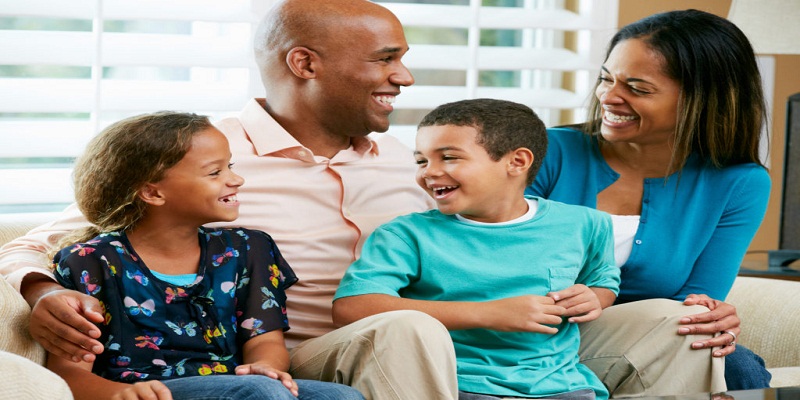In parenting, when we call attention to something that is not right, to the children what can reach according to our tone or your way of saying it and acting, is that you do not want them, especially when they are small, conveying a wrong message. It is important that you make the effort in this sense to show the kids respect when you have to say something without judging them and showing that it is love that you feel for them and not anger. This does not mean that you have to hide your own feelings, it just means that even if you make them see that you are angry, you do it from love and respect, not from anger.
The reason may be anyone, let’s assume that the kid has crossed the road running. Horror, right? It is important that you let go of your fear and at the same time get annoyed because he has not listened to you when he has decided to cross and you talk to him with love. No matter how old the kids is, it does not matter if we talk to the kid with love, the kid will understand it. The reproaches only come to them in a negative way and they feel unloved. By avoiding reproaches, you can send the same message but with respect.
So instead of a ‘I have not told you a thousand times that you cannot cross the road alone and running, you never listen to me, you’re dumb, you can be run over by a car!’ Much better to say ‘Thank goodness, you’re fine, it’s been very dangerous what you have done, when we calm down, we will talk about this because you cannot cross the road alone and running.’ Postponing the moment until you have calmed down will serve to leave the reproach aside and be able to speak with respect until finding a solution.
Each person and each child has different needs; there are those who constantly need the contact of kisses or hugs and there are those who need more words or deeds. But we all have needs in some way and according to acts we receive. Surely you can find out how to make your child get all the love you feel for him/her.
The fact of giving a hug, saying ‘I love you.’ or any other sign of affection recharges the batteries. Don’t you recharge your batteries when your children suddenly come to you to hug you or say ‘I love you, mom.’ or ‘I love you, dad.’ If this happens often, when they are adults and look back in time remembering their childhood, they will have a pleasant memory, which will be of great help in their adult life. A child who receives constant displays of affection is a child more confident of himself. This security serves as stimulation to want to learn. Children learn constantly as they grow up and the greater that stimulation will be, the faster they will learn. Showing affection is simple. Every little show of affection you have with them will help.
One of the most frequent doubts in both parents and educators is how to set limits to children! And it is that from one generation to another, we have gone from total authoritarianism: ‘You do it because I tell you’ to an excess of permissiveness, perhaps due to confusing the affection and attention. That’s why today I want to talk to you about positive parenting solutions and offer you the tools to establish limits without authoritarianism.
Respectful parenting is not without limits and yes, it is true that many parents have problems when setting standards at home for not wanting to impose their criteria and avoid an authoritarian educational model, however, this can be negative because putting limits could fall into permissiveness. So let’s see how to get the little ones to collaborate without resorting to blackmail, shouting or arguing!
Positive parenting is a methodology that aims to offer parents and educators educational strategies to be kind and firm at the same time, so that any child can feel that belongs to the family and have self-discipline without losing dignity or respect. It is based on mutual respect and collaboration, all with the intention of teaching the child basic skills for life.
Positive parenting seeks to understand the behavior of children and guides to know how to approach their attitude to guide them on their way always in a positive and emotional, but firm and respectful way for both the child and the adult.
It is based on communication, love, understanding and empathy, so that both parties can enjoy family relationships and provide tools to parents to understand the behavior of their children and redirect it with respect, without power struggles.
Principles of Positive Parenting
- It is kind and firm at the same time.
- It helps children feel important.
- It is effective in the long term.
- It teaches valuable life skills.
- It helps children develop their abilities and be aware of them.
You can set limits being respectful and affectionate with the kids. What’s more, with positive parenting, you will be providing tools to lead a balanced life. Remember that respect begins with oneself. A child can only optimize his development to the maximum with sensitive, constant, affectionate and committed parents.
It is important that the limits we mark are always according to the age of the child, and this will make him aware of his role in the tasks of his home and feel part of the family group, which will make him gain security and self-esteem.





